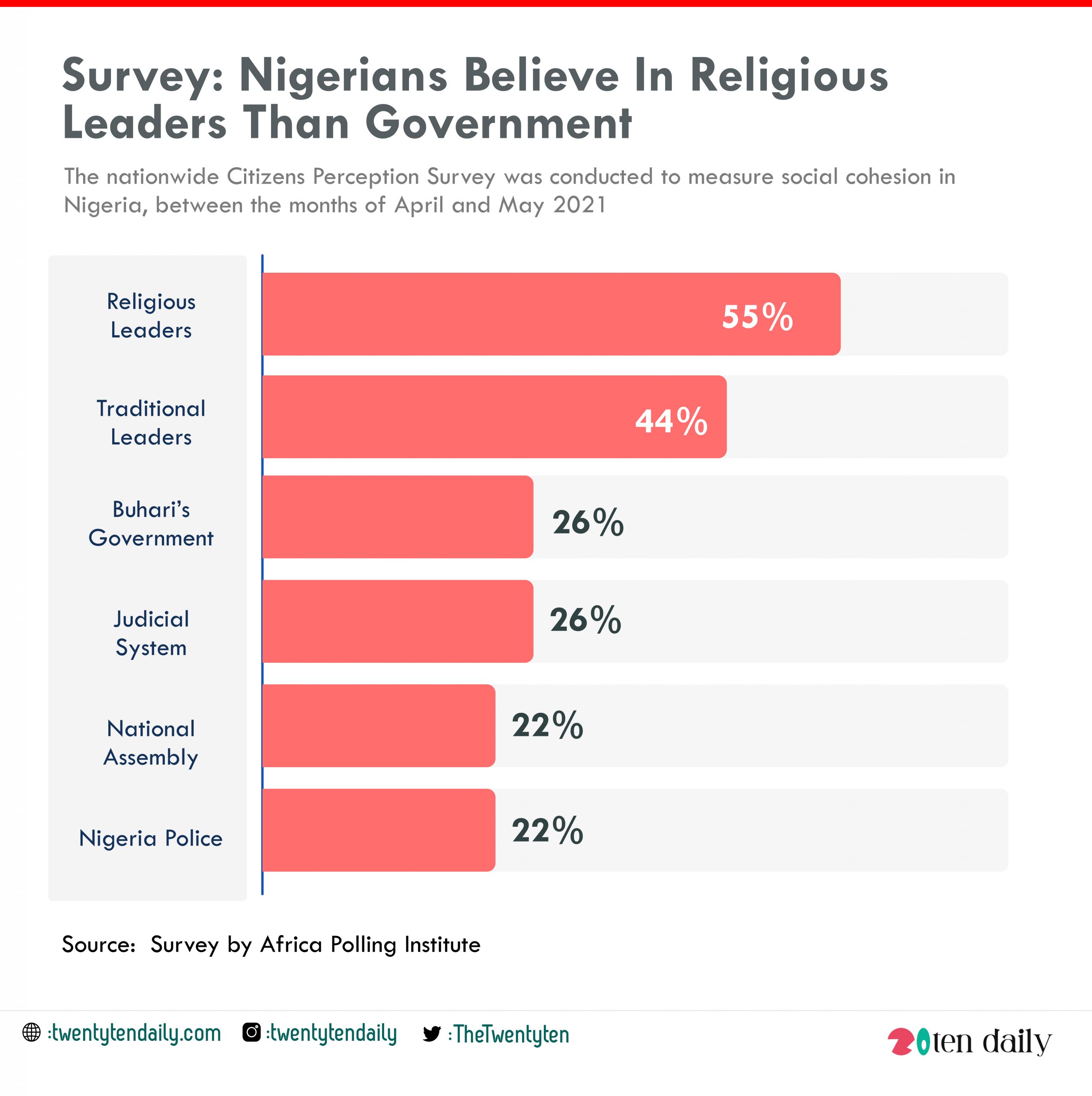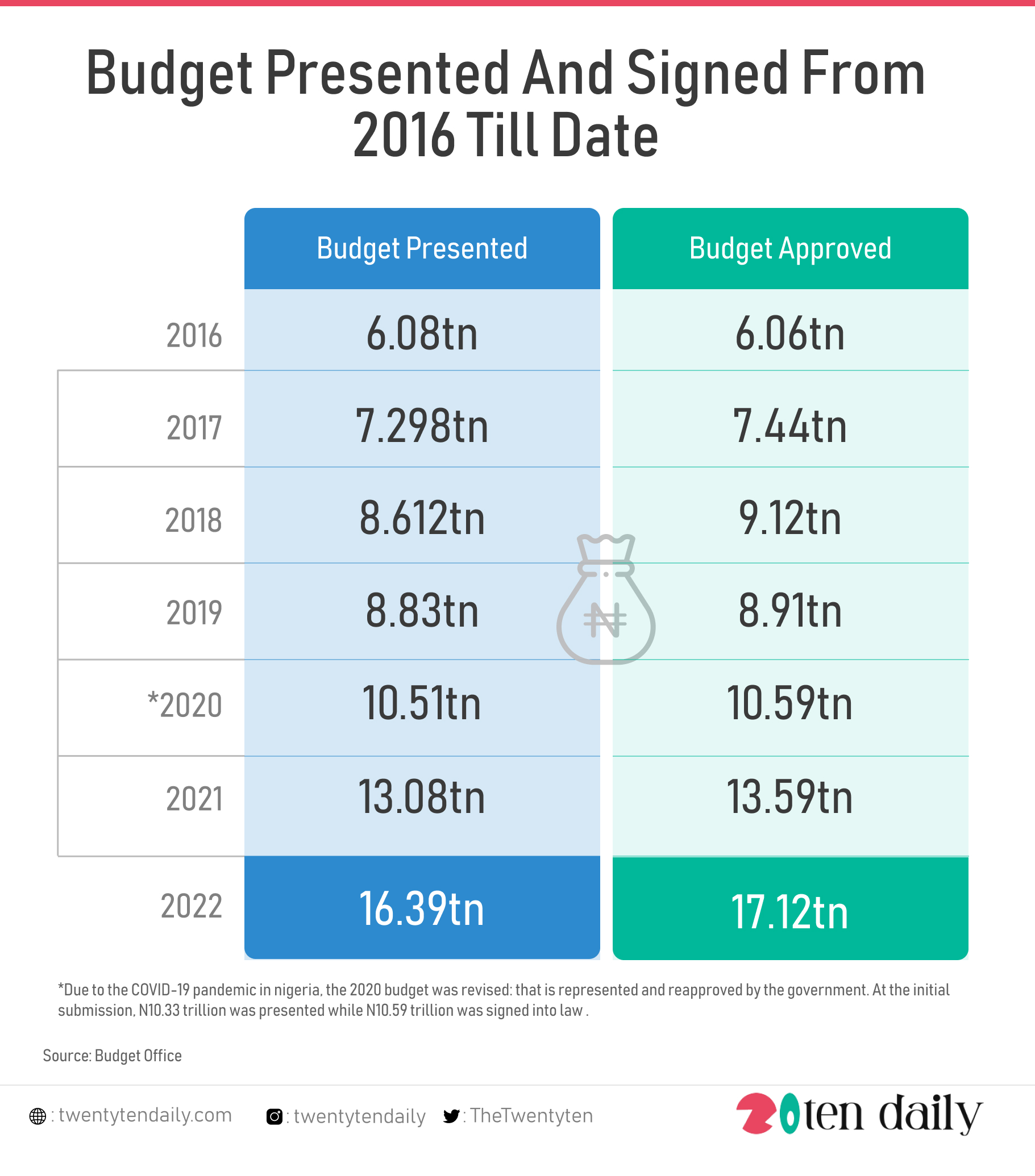Survey: Nigerians Believe In Religious Leaders Than Government
A survey by Africa Polling Institute has shown that Nigerians’ trust in religious and traditional leaders are more than the government and its administration.
The survey also showed that “citizens have more trust in religious leaders (55%) and traditional leaders (44%); compared to the Buhari government (26%), the judicial system (26%), the National Assembly (22%) and the Nigeria Police (22%).”

API with the support of Ford Foundation, conducted the nationwide Citizens Perception Survey to measure social cohesion in Nigeria, between the months of April and May 2021.
A total of 8,114 contacts were contacted out of which 5,363 interviews were completed, representing a response rate of 66.09 per cent.
The institute led by Prof Bell Ihua said all interviews were conducted face-to-face using the Stratified Random Sampling technique; with citizens aged 18 years and above.
The interviews were conducted in five major languages: English, Pidgin, Hausa, Igbo and Yoruba; and geographic quotas were assigned to ensure that all senatorial districts and states were proportionately represented in the sample.
The survey, which shows the growing citizens’ distrust towards the state and fellow citizens and proclivity for ethnicity over nationalism,was computed as 44.2 percent, which is below the average 50 percentage point.
This indicates that Nigeria is not as socially cohesive as it ought to be.
According to the API, the survey was undertaken to develop a social cohesion index for Nigeria and measure citizens’ perception on the state of social cohesion.
The survey report noted that the country had become more divided today than it was four years ago.
The report was based on the observation by 65 percent of citizens interviewed; representing a whopping 20-point increase from 2019’s score of 45 per cent.
The report said, “The trend analysis reveals a decline in the proportion of Nigerians that feel truly proud of the nation. In 2019, 55 percent of citizens said they felt truly proud of Nigeria; however, by 2021 this proportion has declined to 42 per cent, representing a 13 per cent decline.
“Similarly, the proportion of Nigerians that feel truly disappointed in the country has increased – from 30 per cent in 2019 to 49 per cent in 2021, representing a 19 per cent increase.”
According to the API, the survey was built upon 10 key indicators to measure social cohesion in Nigeria in terms of identity; trust; social justice; participation and patriotism; natural resources governance; gender equity; impunity; corruption, self-worth and future expectation.
“Overall, the results of the Nigeria Social Cohesion Survey 2021 and the Nigeria Social Cohesion Index, computed with a score of 44.2 percent, suggest that Nigeria currently falls slightly below the average threshold of a socially cohesive country,” the report concluded.



